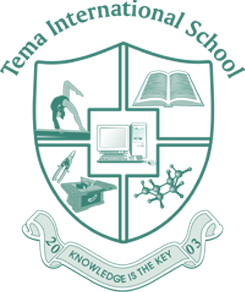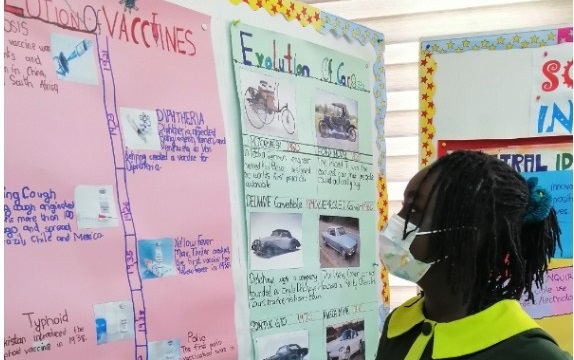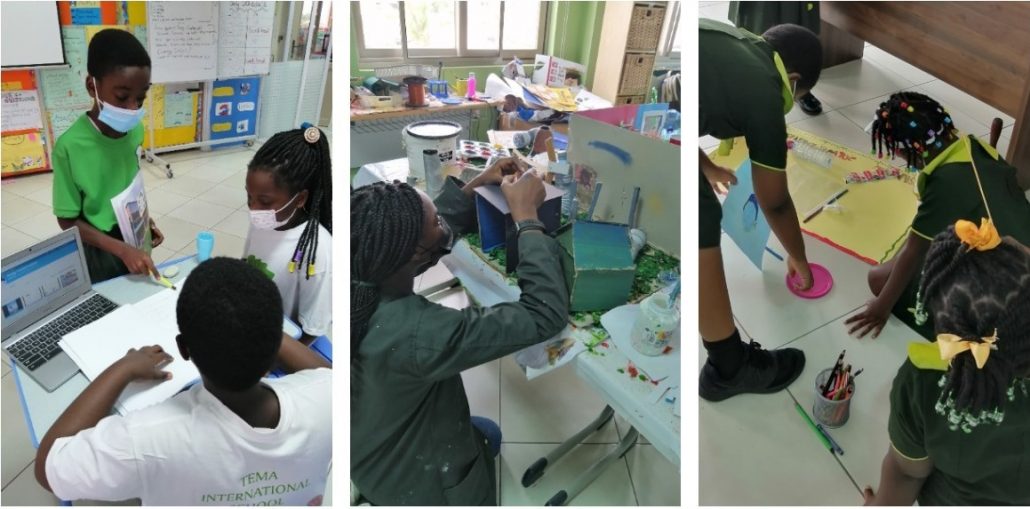At TIS Primary School, authentic learning takes place to develop specific skills in students and make them independent learners. Students are given a voice to make a choice and have ownership of their learning. This encourages them to take appropriate action to support their learning through inquiry-based classroom activities and develop their ATL skills. Learning at the primary level is participatory, purposeful and action-oriented with connections to real-life issues. Our students are inquirers both in school and in the world beyond.
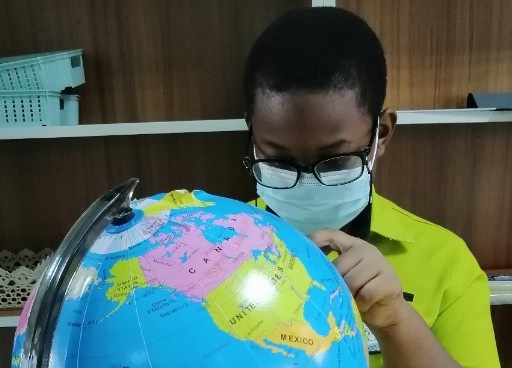 The primary level (Grades 1 to 6) in the school apply a transdisciplinary learning approach with a focus on project-based learning. Here, there is connectivity of all the disciplines within the units of inquiry. Students are always ready to learn and explore new ideas which are relevant, engaging, challenging and significant through the six transdisciplinary themes.
The primary level (Grades 1 to 6) in the school apply a transdisciplinary learning approach with a focus on project-based learning. Here, there is connectivity of all the disciplines within the units of inquiry. Students are always ready to learn and explore new ideas which are relevant, engaging, challenging and significant through the six transdisciplinary themes.
There is beauty in what we do, and students are excited to see their works displayed in and outside their classrooms.
Our internationally-minded students use their initiative to take responsibility and ownership of their learning. They complete their projects with great enthusiasm and pride.
Onyx (The beauty of what we do)
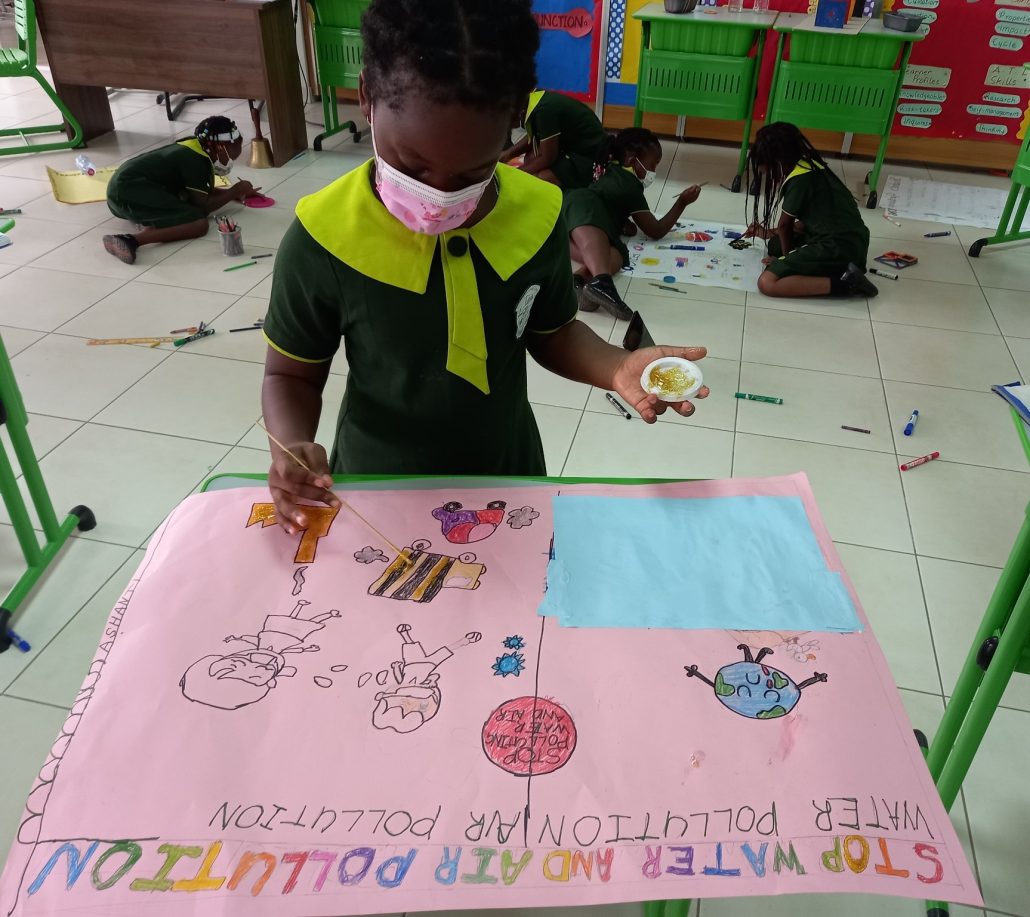 Learners in Grades 1 and 2 have had diverse opportunities to express their learning through various means such as arts, music, role play and poetry recitals. Their ability to connect subjects and concepts they inquire into gives a guarantee that authentic learning is taking place. Over the past units, learners have become capable of working with confidence especially with their communication and presentation skills. Another noted milestone in their learning journey is their ability to reflect on their learning and make the necessary change to improve on their work.
Learners in Grades 1 and 2 have had diverse opportunities to express their learning through various means such as arts, music, role play and poetry recitals. Their ability to connect subjects and concepts they inquire into gives a guarantee that authentic learning is taking place. Over the past units, learners have become capable of working with confidence especially with their communication and presentation skills. Another noted milestone in their learning journey is their ability to reflect on their learning and make the necessary change to improve on their work.
The final unit, ‘How the world works’, has seen these young learners take ownership of their learning by researching experiments to support what they are learning in class. They prepare for the experiments and perform them for the whole class to observe, then explain the scientific phenomenon behind it. Indeed, this is an exciting way to gain a conceptual understanding of one’s learning. We are convinced that the joy of learning and the beauty of what students have studied in their current grade will make them exceptional in their next grade. ‘Science is the magic that works’, a quote by Kurt Vonnegut. This is what the Onyx students have demonstrated in this unit and the pictures below tell it all. The students shared their experiments with the entire TIS PYP Primary during the Friday Unit Assembly.
Opal (Transdisciplinary learning through design)
The Opal class, Grades 3 and 4 at the TIS Primary level, has active students who are ready to explore creative activities in their learning. The students collaborate in all subject disciplines. Throughout the semester, students in the opal class have developed their communication skills, social skills, research skills and self-management skills through transdisciplinary classroom activities. They collaborated to work on different projects as evidence of their learning.
Students engaged in transdisciplinary learning activities as evidence of authentic learning.
Students independently research for information, give various presentations and work on their projects collaborating effectively to share new ideas. Transdisciplinary learning through design focuses on the connectivity of individual disciplines during learning and teaching fostering creativity which is seen in the way they critically think to show how knowledgeable they are.
Students in the Opal class collaborating on their projects as evidence of authentic learning through design.
Throughout all three units of inquiry for this semester, the students have made their music, artworks, used different languages to express themselves and engage in discussions holistically. Their interest in music made them take a step to create their songs on role models, natural resources, living things, machines and energy to show action through learning. The last unit ‘How the world works’ focuses on different forms of energy and how they can help in the function of simple machines to make our lives easier and the students collaborated to make a song to show their understanding.
Ruby (project-based learning)
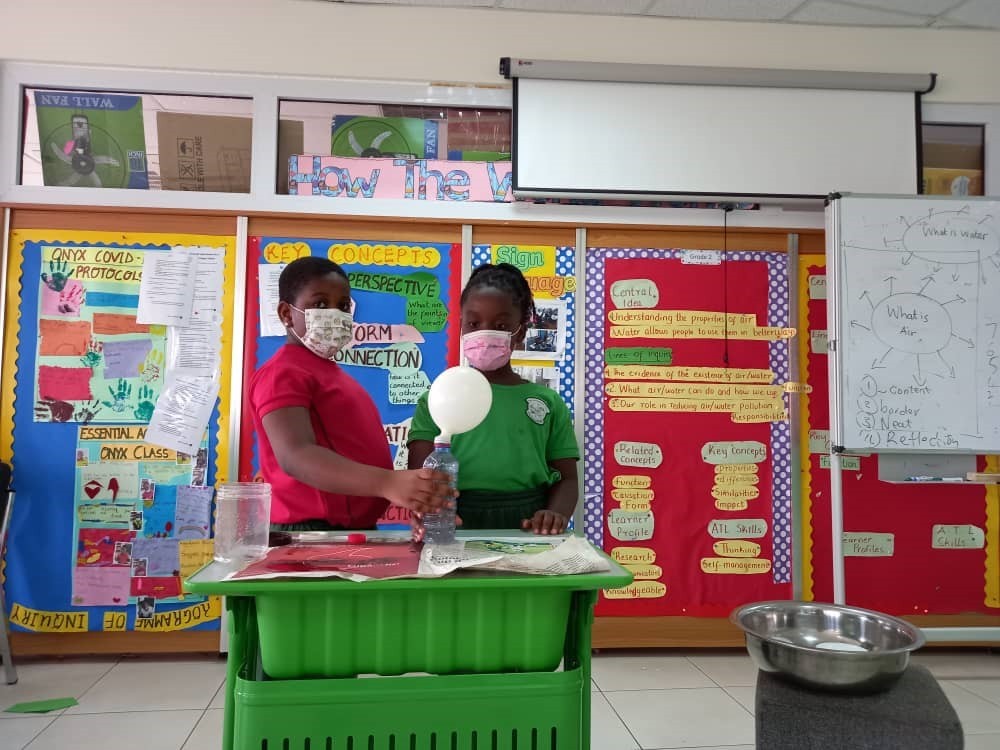 The Ruby Class, Grades 5 & 6, has been preparing for our inaugural PYP Exhibition. The exhibition allows students to explore problems of interest to provide solutions.
The Ruby Class, Grades 5 & 6, has been preparing for our inaugural PYP Exhibition. The exhibition allows students to explore problems of interest to provide solutions.
Problem-Based Learning (PBL) is a student-centered approach to learning that involves students working to solve real-world problems. PBL allows students to experience transdisciplinary learning as students are required to use various skills acquired from several disciplines to work. By working with PBL, students will:
- Become engaged with open-ended situations that assimilate the world of work
- Participate in groups to pinpoint what is known/ not known and the methods of finding information to help solve the given problem.
- Investigate a problem; through critical thinking and problem solving, brainstorm a list of unique
- Analyze the situation to see if the real problem is framed or if other problems need to be
